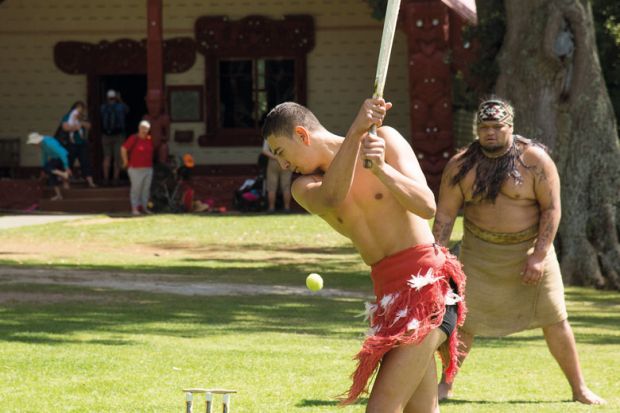New Zealand universities are bristling at a requirement to equalise pass rates for students from the major ethnic groups.
Success rates among Māori and Pacific Islanders have long trailed those of students from other backgrounds. On a full-time equivalent basis, students of European heritage passed 88 per cent of the bachelor’s degree subjects they attempted in 2022. This compared with 80 per cent for Māori students and 71 per cent for Pacific Islanders.
The Tertiary Education Commission (TEC) wants universities to commit to completion rates parity in degrees and their component courses. It is asking universities to set target dates in institutional “learner success plans”, with a 2030 deadline understood to be favoured.
While some universities have acceded, at least one has declined. “With approximately a third of our student body being Māori and Pacific, and with so many unknowns, we do not currently feel in a position to set a realistic target,” said a University of Waikato spokeswoman.
She said Waikato was “fully committed” to achieving parity but did not want to risk being forced to reject would-be students because it could not provide enough “wrap-around support” to meet a target. “Individualised support is costly, and TEC equity funding does not go far,” she said.
Auckland University of Technology said future completion targets were still being negotiated with the TEC. “Despite parity targets having been set by successive governments and tertiary education organisations, this has not been matched with funding to support the outcome,” a spokesman said. “Government funding also does not recognise that students with educational disadvantage are not equally distributed between the tertiary providers.”
Massey University has agreed to a 2030 target while noting that it has not received any extra funding to meet the deadline. Victoria University of Wellington’s learner success plan includes a commitment to “equity of qualification completions” at bachelor’s level by 2030, but deputy vice-chancellor Stuart Brock said the institution “is likely to be under-resourced to achieve these targets”. The University of Otago is still negotiating its learner success plan but has committed to “equity in educational achievement” in its 2030 strategy.
Universities New Zealand (UNZ) said Māori and Pacifica students often entered university with lower average grades than those with European heritage. “It’s a huge ask to expect similar outcomes when you’re starting from two different bases,” said chief executive Chris Whelan.
“Every university supports the concept of the target. How do we get the resourcing lined up so that we can actually deliver on it? This is another worthy in a long series of unfunded initiatives.”
The TEC provides “top-up” equity funding for Māori and Pacifica undergraduates and postgraduates, and it recently announced an additional NZ$10 million (£4.7 million) to “co-fund learner success initiatives”.
Mr Whelan said the equity loading equated to about NZ$380 per student per year. He said UNZ research had found that students who were “academically less prepared” typically needed 70 to 80 hours of additional one-on-one support at an estimated cost of about NZ$4,000 a year.
University of Auckland educational sociologist Sereana Naepi said that with relatively youthful populations, Māori and Pacifica people were entering university in increasing numbers. “We’re seeing a demographic shift,” she said. “If we don’t deliver an education system that provides for all communities, we’re going to deliver an education system that’s ultimately failing.”
While acknowledging the additional costs, Dr Naepi said it was useful to set targets. “It gives a way…to hold the university to account. Universities can say, ‘we’re trying our best’, but without that target, you don’t really know.”





